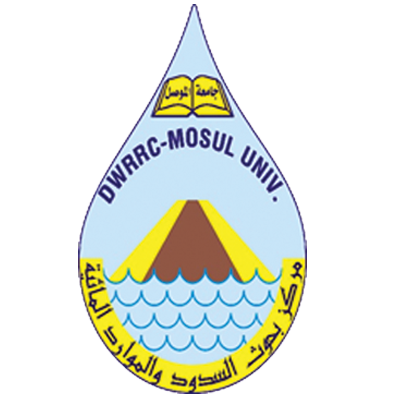Vision, Mission and Goals
Vision of the Center:
Achieving self-sufficiency for Iraq in available water resources, preserving and developing them by evaluating current water projects such as dams, irrigation projects, and groundwater. Developing future plans for managing quantitative and qualitative water shortages, investing in and conserving water usage in response to water scarcity resulting from climate change, and the policies of riparian states with Iraq.
Mission of the Center:
1. Preparing specialized scientific research teams in the fields of dams and water resources and completing the infrastructure with the necessary devices, equipment, and supplies for the center’s work to contribute effectively to water resource management and solve problems facing implemented projects.
2. Establishing clear strategies for the sectors of dams and water resources, considering climate changes, relationships with riparian states, and policies for the investment and management of water resources in both the short and long term.
3. Employing research included in the center’s annual research plans in relevant fields of dams and water resources according to future needs and addressing some interim problems and obstacles.
4. Engaging with relevant state departments and sectors to study their problems and propose effective solutions under the concept of “University Cooperation with Society.”
Goals of the Center:
1. Conducting research aimed at the efficient and rational use of water resources, developing alternatives to enhance and develop them, and implementing research related to dams, including engineering, geotechnical, and geological studies. Additionally, collaborating with similar scientific departments in colleges and state institutions relevant to the center’s specialization to implement and achieve its annual scientific plans.
2. Conducting studies and consultations related to the development of water resources for state institutions to solve the problems they face through specialized scientific teams formed for this purpose in the center.
3. Delivering lectures and teaching in various university departments according to the scientific specializations of the staff and supervising postgraduate students (master’s and doctoral) in departments related to their scientific specializations. Teaching helps the center’s staff stay connected with educational and training fields for university students, and the scientific and practical experience of the teaching researcher enriches the scientific subjects taught to undergraduate and graduate students.
4. Organizing periodic scientific conferences and specialized seminars in the fields of dams and water resources to present research focused on managing, designing, and addressing problems in hydraulic systems and optimizing the use of surface and groundwater resources. The center’s management is keen to invite experts, specialists, and researchers in this field to discuss ideas and research aimed at improving and enhancing the performance of these systems.
5. Building a solid database that serves as the foundation for a genuine scientific research revival in the fields of water resources, relying on the documentation of information, statistics, and data related to water resources and the scientific specializations of the research staff in the center.
6. Holding a series of annual discussion sessions to review the research listed in the center’s scientific plan to discuss the goals and results addressed by the researcher to complete specialized and scientifically robust research. Additionally, presenting various scientific ideas and topics.
7. Participating in national scientific conferences and seminars (held by the University of Mosul or other Iraqi universities or research departments in state ministries) and regional and international conferences and seminars.
8. Offering developmental courses for the center’s staff and relevant state departments on using computer systems related to mathematical and computational models for surface and groundwater resources.
9. Developing scientific staff in the center through training in specialized courses, workshops, and discussion sessions inside and outside Iraq.
10. Participating in scientific and technical committees at the university, provincial, or ministerial levels, providing scientific consultations to enhance the “Role of the University in Society.”
11. Training students in non-final grades on various academic activities related to their specializations within the university’s annual framework, including theoretical and practical lectures by specialized researchers in those fields.
12. Keeping up with the introduction of the center’s activities by issuing volumes of completed research and projects, scientific bulletins, and activity booklets.

